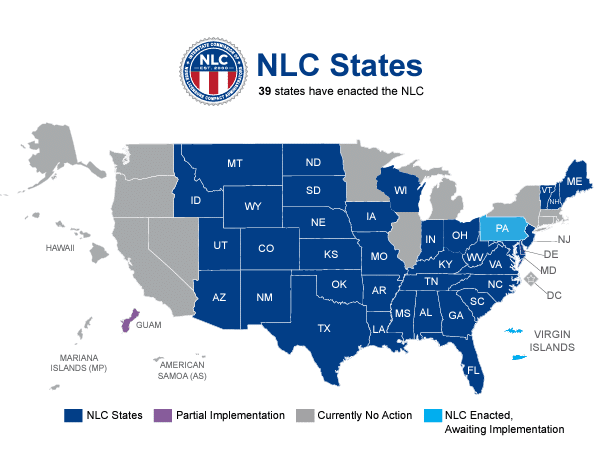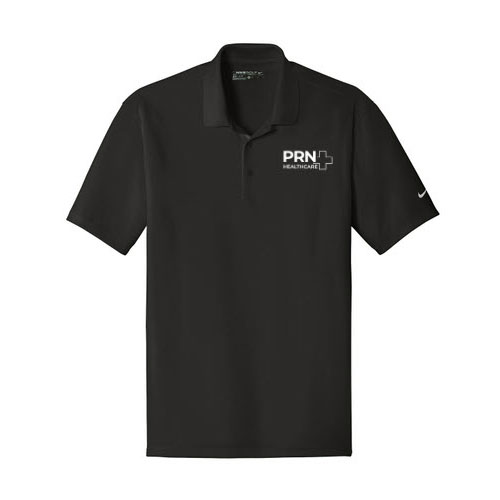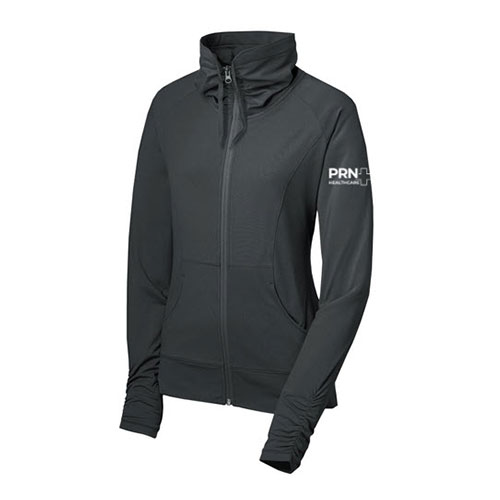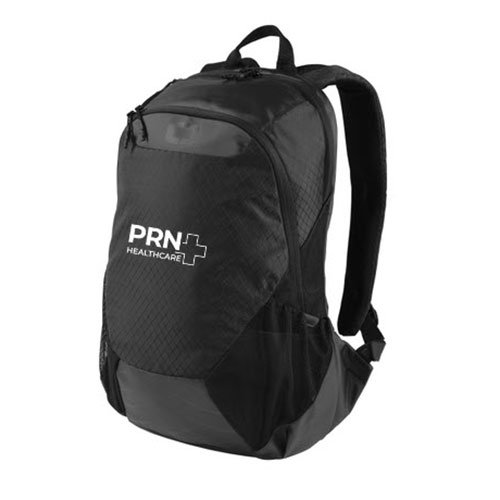Table of Contents
How To Become a Travel Nurse:Travel Nurses Are AdventurousTravel Nurses Are AdaptableTravel Nurses Desire Flexibility and Higher PayUnderstanding Travel Nurse Specialties: Which Specialty is Right For You?Things To Consider When Choosing a Nursing SpecialtyComparing ADN and BSN DegreesFactors in Travel Nurse SalaryTravel Contract LocationHigh Paying Nurse SpecialtiesExperience Impacts Pay5 Things to Look for in a Travel Nursing Agency1. Variety of Jobs in Your Specialty2. Joint Commission Certification3. Transparent and Knowledgeable Recruiters4. 24/7 Support5. Reviews and ReferralsStart Your Travel Nursing Adventure!Frequently Asked Questions About Becoming a Travel NurseWhat is a travel nurse?How do I become a travel nurse?3. What are the benefits of being a travel nurse?4. What are the challenges of being a travel nurse?5. How long are typical travel nurse assignments?6. Do travel nurses receive housing and travel allowances?7. Can I bring my family or pets with me on travel nurse assignments?Travel nursing is a lucrative and exciting career path. Travel nurses fill staffing shortages nationwide. Employment opportunities for nurses will continue growing quickly, 9% faster than all other occupations from 2016 through 2026. With the high need for nurses, travel nursing presents a great opportunity! Before you make the jump, understand if travel nursing is right for you and how to become a travel nurse.
How To Become a Travel Nurse:
- Figure out if travel nursing is right for you
- Earn BSN degree
- Pass NCLEX exam
- Apply for a Compact Nursing License
- Gain at least one year of nursing experience
- Understand the salary for travel nurses
- Find your perfect travel nurse agency
Is Travel Nursing Right For You?

To figure out if travel nursing is right for you, you must look inside yourself. What do you value? What kind of career goals do you have? Travel nurses have certain characteristics that make them successful. Some people have it and others don’t, and that’s okay!
Here are some of the signs you would love travel nursing:
Travel Nurses Are Adventurous
Travel nurses have a sense of adventure! Every 13 weeks, travel nurses move to new facilities and locations unless they decide to extend a contract. You don’t always have to leave your home state, but we recommend trying some cross-country assignments if you are open to it. Traveling cross-country allows you to chase the best rates and enjoy optimal locations at optimal times! For example, if you are a skier, Colorado might be an attractive state during the winter months. On the other side of the coin, if you hate the cold winter months, you can escape to the southern states for some sunshine. One of the most appealing aspects of travel nursing is traveling and getting paid for it!
Travel Nurses Are Adaptable
Being adaptable is an important skill travel nurses have. Think about all the changes travel nurses experience. Every 13 weeks, they start at a new facility, in a new city, with new co-workers. A change of scenery can be rejuvenating to some and stressful to others. If you are the type of person who doesn’t like change, travel nursing probably isn’t for you. If you get bored easily, though, travel nursing can definitely help your restlessness and keep you satisfied. The more flexible a nurse is with travel nursing the better. Many variables come into play when choosing contracts, like pay, demand, and location! If you can be flexible with things like location, you’ll get a lot of great opportunities to choose from!
Travel Nurses Desire Flexibility and Higher Pay
Flexibility is a huge benefit of travel nursing and something most nurses crave! Travel nurses often make a higher salary than staff nurses. TravelNursing.org reported that according to Indeed, the average annual salary for a travel nurse is $108,070 in 2022. That is significantly higher than the average mean salary for staff nurses, which is $75,330 per year, according to the Bureau of Labor Statistics (BLS). The higher salary means nurses can be more flexible with their time off. For example, some nurses like to work a few contracts in a row and then take a month off to enjoy time with family or travel. The higher pay allows you to supplement your lifestyle! Taking time off and enjoying people and things that make you happy will fight burnout and increase work-life satisfaction.
Understanding Travel Nurse Specialties: Which Specialty is Right For You?

When thinking about becoming a travel nurse, you must consider which kind of travel nurse you want to be. This comes down to the nursing specialty.
Things To Consider When Choosing a Nursing Specialty
- Population you want to work with
- The pace of your workday
- Type of Ailments patients may be experiencing
- Skills performed on a daily basis
- Annual Salary
Sometimes nurses are drawn to certain specialties based on the population they would be taking care of. For example, some nurses enjoy working with babies, while others enjoy working with the elderly population. If you enjoy working with newborns, labor and delivery, NICU, PICU, Pediatrics, or postpartum might be areas you will want to explore. Nurses sometimes choose their specialty based on pace. Someone who enjoys working in a fast-paced environment would be attracted to the ER compared to working in a clinic. You may also choose a nursing specialty based on the types of ailments you will be seeing and treating, the same with the types of skills you are hoping to use every shift. Finally, salary potential can also be a deciding factor when choosing a nurse specialty.
Earn a Bachelor of Science in Nursing (BSN) or Associate Degree in Nursing (ADN)

Hospitals require travel nurses to have an ADN or BSN degree from an accredited university. Both degrees come with pros and cons and differ slightly when it comes to how long it takes to earn, the curriculum, NCLEX pass rates, and earning potential.
A BSN typically takes four years to achieve. The first two years are general studies that make individuals well-rounded. Make sure to join some nursing clubs on campus to get your feet wet during this time. The last two years of your BSN degree are dedicated to nursing coursework and clinicals. An ADN typically takes two years to complete and focuses more on hands-on training, like clinical and lab skills. Whether you are going for your ADN or BSN, this is a stressful time for most students, so make sure to lean on your classmates and get to know your professors. Joining Facebook groups for support is also helpful; no one knows what you are going through as a nursing student quite like other nursing students. Also, download useful apps to help you pass your exams and prep you for the NCLEX.
Comparing ADN and BSN Degrees
| ADN | BSN | |
| Completion Duration | 2 Years | 4 Years |
| Curriculum | Clinical and lab trainings with core nursing coursework | Prerequisites, clinical and lab skills, training in leadership, research, and nursing management |
| NCLEX Pass Rate | 78% | 82% |
| Salary | $70,820 | $81,200 |
| Option to Travel Nurse | Yes | Yes |
The main difference between an ADN and a BSN degree is a time of completion and earning potential. While you can earn an ADN faster, your earning potential is not as high as someone who has a BSN degree. This may be because BSN earners are favored to have more opportunities to move into leadership opportunities with experience.
Pass NCLEX Exam To Become A RN

To become a travel nurse, you must pass the National Council Licensure Examination (NCLEX) exam. Many nurses take the NCLEX after graduating with their BSN. The NCLEX is a comprehensive nursing exam that tests the knowledge, skills, and abilities of the test taker. Unlike other knowledge-based exams in school, this exam focuses on the application and critical thinking skills that reflect real-world nursing problems. Below is an example of NCLEX question:
A 23-year-old woman with insulin dependent diabetes mellitus (IDDM) is returned to the recovery room one hour after an uneventful delivery of a 9 lb., 8 oz., baby boy. The nurse would expect the woman’s blood sugar to:
A. rise B. fall C. remain stationary D. fluctuate
You can see this exam question is comprehensive of different aspects and specialties of nursing. To correctly answer you must take into consideration the pathology of diabetes and the principles of labor and delivery. The correct answer is B.
Make sure to register and schedule your NCLEX exam in advance as available spots fill up quickly!
Apply for a Compact Nursing License

If you’re wondering how to become a travel nurse, securing a compact nursing license is ideal. After you pass the NCLEX, you can apply for a multi-state license if you live in one of the 39 states that are part of the Nursing Licensure Compact program. This program allows you to travel to other states in the program and practice nursing without additional certifications or licensures. If your state is not in the NLC, then you will have to apply for a single-state license in your state and in the states you hope to travel nurse in. Apply for your nursing license right away, as it takes a few weeks to process.
Gain At Least One Year of Experience

Once you achieve a BSN and pass the NCLEX, you can start applying for nursing jobs without additional training. Some new nurses prefer to start their careers in a Nurse Residency Program to attain new credentials and skills. Whatever path you choose, you must gain at least one year of experience within the last two years in a given specialty to become a travel nurse. Hospitals and facilities require travelers to have at least one year of experience under their belt to protect the nurse’s licensure and ensure excellent patient care. The more experience you have, the more attractive you will look to potential employers. Once you have one year of experience, travel nursing is a great way to build your resume and experience!
What is the Salary of a Travel Nurse?

Some people start to wonder about how to become a travel nurse after hearing about the salary potential of travel nursing. It’s no secret travel nurses make great money, almost 30% more than staff nurses. Keep in mind rates increase and decrease for many reasons so there is no straight answer to “How much do travel nurses make?”
Factors in Travel Nurse Salary
- Location
- Cost of Living
- Demand for Nurses
- Nurse Specialty
- Experience
Travel Contract Location
Rates vary by state and city; here is a list of travel nurse salaries based on state. Keep in mind some states pay a lot higher than other states because of the cost of living. For example, California pays almost $52,000 per year more than Alabama. This is because it costs more to live and eat in California than in Alabama. California also probably has a higher need for nurses than Alabama. These are all pieces that build a travel nurse pay package!
High Paying Nurse Specialties
Another factor in travel nurse salary is the specialty. Some specialties have higher demand and, in turn, higher pay! One of the highest paying specialties is an operating room nurse, followed closely by Labor and delivery nurses! Check out other high-paying specialties here.
Experience Impacts Pay
Experience is also attributed to income. The more experience you have, the better! Travel nursing is a great way to build your resume. It shows you are successful in many different environments and with different people. The more certifications you can obtain, the more attractive you will look to a future employer and the more they will pay to have you on the team. Nurses never stop learning! Embrace that with diverse experiences and learning opportunities.
Find a Travel Nursing Agency

Once you are coming up on the nine-month marker of gaining one year of experience, you can start reaching out to agencies. Three months gives you the optimal time to start researching travel nurse agencies, browsing what jobs are out there, and chatting with recruiters. This can be a little overwhelming since there are many travel nurse staffing agencies on the market. You’ll want to find an agency that matches your values, has a great assortment of jobs, and has a recruiter you can work comfortably with. Here are some of the things to look for when finding a travel nursing agency.
5 Things to Look for in a Travel Nursing Agency
1. Variety of Jobs in Your Specialty
No matter how much you like an agency, you won’t be able to stick with them if they don’t offer competitive contracts in your specialty. Make sure to browse contracts, most agencies list these right on their website. You can browse jobs in specific states and drill right down into specific cities too. If you don’t see your desired location on the job feed, you can always contact a recruiter to see if they have any on the backend. Jobs come and go by the hour, so you never know when a job you might want will pop up.
2. Joint Commission Certification
A new travel nurse should always make sure an agency is Joint Commission Certified. This signals they meet the gold standards of staffing. Having this certification means they are committed to offering a higher standard of service by the processes they abide by. Think of this certification as a benchmark for success. Every staffing agency you work with should be certified.
3. Transparent and Knowledgeable Recruiters
After choosing an agency, choosing a recruiter is the next step! Sometimes depending on where you are traveling, the recruiter pool will be narrowed down. This is because some recruiters are experts in certain areas or hospital systems. When speaking with recruiters, there are some key qualities you will want your recruiter to have. Some of these include:
- Honest
- Knowledgeable
- Transparent
- Great Communication
- Caring/Compassionate
You don’t want a recruiter who treats you like you are just another number to them. Ideally, you’ll want a seasoned recruiter who knows all aspects of travel nursing and can walk you through how to become a travel nurse. You’ll also want to work with a recruiter who you connect with and who matches your pace. This means if you work hard to make sure things are done quickly, they will do the same for you.
4. 24/7 Support
Nurses work all hours of the day and night. Having 24-hour guaranteed support is crucial, especially for new travel nurses. When questions arise or you have a question about an upcoming shift, knowing you have an answer that’s just a call away puts the mind at ease.
5. Reviews and Referrals
When you decide to try a new restaurant, normally you decide by reading online reviews or because of a referral from a friend. The same thing is true with travel nurse agencies. The best way to start your shortlist of travel nurse agencies is by asking other travel nurses which agency they would recommend. Referrals from friends are also a great way to get in contact with awesome recruiters. Also reviewing reviews on Facebook, Google Business, and Glassdoor give a great look into what people loved and didn’t love while working at an agency.
We hope this blog answered the question of how to become a travel nurse. After achieving a BSN in nursing and passing the NCLEX it is smooth sailing of obtaining one year of experience in a given specialty. From there, the fun part of looking for contracts and deciding on a travel agency is near! Travel nursing is such a rewarding and exciting career. If you have any questions on how to become a travel nurse, we have knowledgeable recruiters ready to chat with you.
Start Your Travel Nursing Adventure!
At PRN Healthcare, we are here to work as a matchmaker for you. With almost three decades of industry experience, we have great relationships with facilities which make placing nurses in their dream contracts seamless. We get to know you. You are not just a number here! Once we get to know your motivations, wants, and needs we start looking for the best opportunities for you. Check out our available travel nursing jobs.
Frequently Asked Questions About Becoming a Travel Nurse
What is a travel nurse?
A travel nurse is a registered nurse (RN) or other healthcare professional who takes short-term assignments at various healthcare facilities across different locations. These assignments can range from a few weeks to several months and are typically in high-demand areas or during peak staffing times.
How do I become a travel nurse?
To become a travel nurse, you’ll need to follow these general steps:
a. Get the Necessary Education: Start by completing a nursing program and obtaining a nursing license. Most travel nurse positions require at least an associate degree in nursing (ADN) or a bachelor’s degree in nursing (BSN).
b. Gain Clinical Experience: Gain a few years of clinical experience in a healthcare setting, preferably in the specialty you want to pursue as a travel nurse.
c. Obtain Licensure: Obtain a nursing license in the state(s) where you want to work. Many travel nurses hold multiple state licenses to increase their job opportunities.
d. Certifications: Consider obtaining certifications in your chosen specialty, such as Critical Care Registered Nurse (CCRN) or Emergency Nursing Pediatric Course (ENPC), to enhance your qualifications.
e. Choose a Travel Nursing Agency: Research and select a reputable travel nursing agency that matches you with suitable assignments and provides support throughout your career.
f. Apply and Interview: Submit your application and go through the interview process with your chosen agency. Once accepted, you can start applying for travel nurse assignments.
3. What are the benefits of being a travel nurse?
Higher Pay: Travel nurses often earn higher salaries than their full-time counterparts, thanks to bonuses, stipends, and competitive hourly rates.
Exploration: You have the opportunity to explore new cities, states, and regions while advancing your nursing career.
Diverse Experience: Working in various healthcare facilities and settings allows you to gain diverse clinical experience and enhance your skills.
Flexibility: You can choose when and where you want to work, allowing for a better work-life balance.
Networking: Building a network of healthcare professionals nationwide can be beneficial for future career opportunities.
4. What are the challenges of being a travel nurse?
Frequent Relocation: Constantly moving to new locations can be challenging for those who prefer stability.
Adjustment Period: It may take some time to adapt to new facilities, routines, and colleagues at each assignment.
Benefits and Retirement: Travel nurses may have different benefits and retirement plans compared to permanent staff, so it’s essential to understand the package offered by your agency.
5. How long are typical travel nurse assignments?
Travel nurse assignments can vary in length. They typically range from 4 to 13 weeks, although some can be shorter or longer, depending on the facility’s needs and your preferences.
6. Do travel nurses receive housing and travel allowances?
Yes, most travel nursing agencies offer housing and travel stipends as part of their compensation package. Some agencies provide fully furnished housing, while others offer a housing stipend that allows you to find your accommodation.
7. Can I bring my family or pets with me on travel nurse assignments?
In many cases, yes. Some travel nurses choose to bring their families or pets with them on assignments, while others prefer to travel solo. It ultimately depends on your preferences and the flexibility of your chosen agency.
Also read our other articles about travel nursing!
Travel Nurse Salary
Travel Nurse Housing
Travel Nurse Licensing
Travel Nurse Resumé
Local Travel Nursing
Travel Nurse Taxes
Travel Nurse Apps
Travel Nurse Podcasts
Types of Travel Nurses
Health Insurance For Travel Nurses




